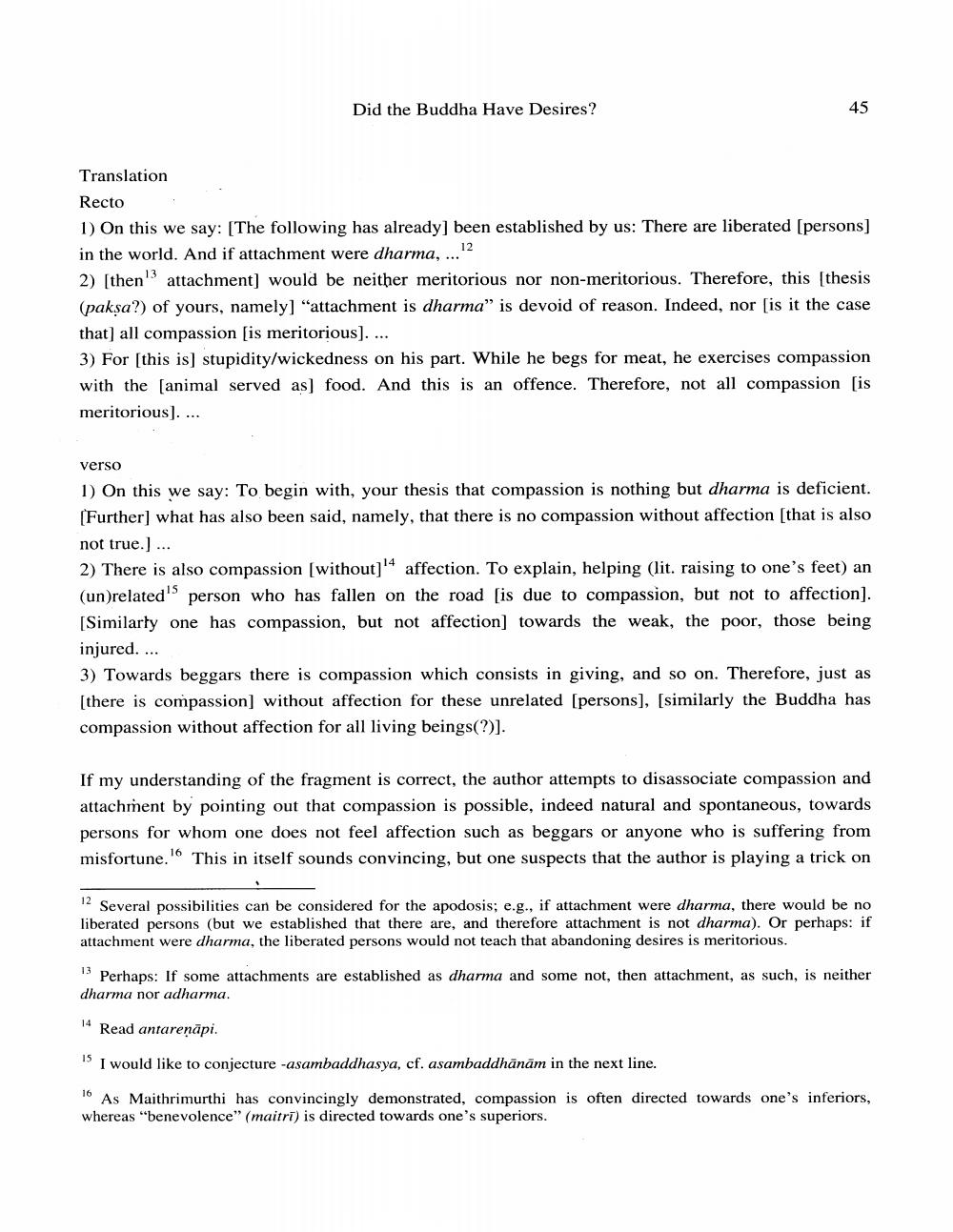Book Title: Did Buddha Have Desires Author(s): Eli Franco Publisher: Eli Franco View full book textPage 7
________________ Did the Buddha Have Desires? 45 Translation Recto 1) On this we say: [The following has already) been established by us: There are liberated (persons] in the world. And if attachment were dharma, ....2 2) [then attachment] would be neither meritorious nor non-meritorious. Therefore, this [thesis (paksa?) of yours, namely] "attachment is dharma” is devoid of reason. Indeed, nor [is it the case that) all compassion [is meritorious). ... 3) For [this is stupidity/wickedness on his part. While he begs for meat, he exercises compassion with the [animal served as food. And this is an offence. Therefore, not all compassion (is meritorious). ... verso 1) On this we say: To begin with, your thesis that compassion is nothing but dharma is deficient. (Further] what has also been said, namely, that there is no compassion without affection (that is also not true.) ... 2) There is also compassion (without]!affection. To explain, helping (lit. raising to one's feet) an (un)related person who has fallen on the road [is due to compassion, but not to affection). [Similarly one has compassion, but not affection] towards the weak, the poor, those being injured. ... 3) Towards beggars there is compassion which consists in giving, and so on. Therefore, just as [there is compassion) without affection for these unrelated [persons], [similarly the Buddha has compassion without affection for all living beings(?)). If my understanding of the fragment is correct, the author attempts to disassociate compassion and attachment by pointing out that compassion is possible, indeed natural and spontaneous, towards persons for whom one does not feel affection such as beggars or anyone who is suffering from misfortune. This in itself sounds convincing, but one suspects that the author is playing a trick on 12 Several possibilities can be considered for the apodosis; e.g., if attachment were dharma, there would be no liberated persons (but we established that there are, and therefore attachment is not dharma). Or perhaps: if attachment were dharma, the liberated persons would not teach that abandoning desires is meritorious. Perhaps: If some attachments are established as dharma and some not, then attachment, as such, is neither dharma nor adharma. 14 Read antarenāpi. 1s I would like to conjecture -asambaddhasya, cf. asambaddhānām in the next line. 10 As Maithrimurthi has convincingly demonstrated, compassion is often directed towards one's inferiors, whereas "benevolence" (maitrī) is directed towards one's superiors.Page Navigation
1 ... 5 6 7 8 9
